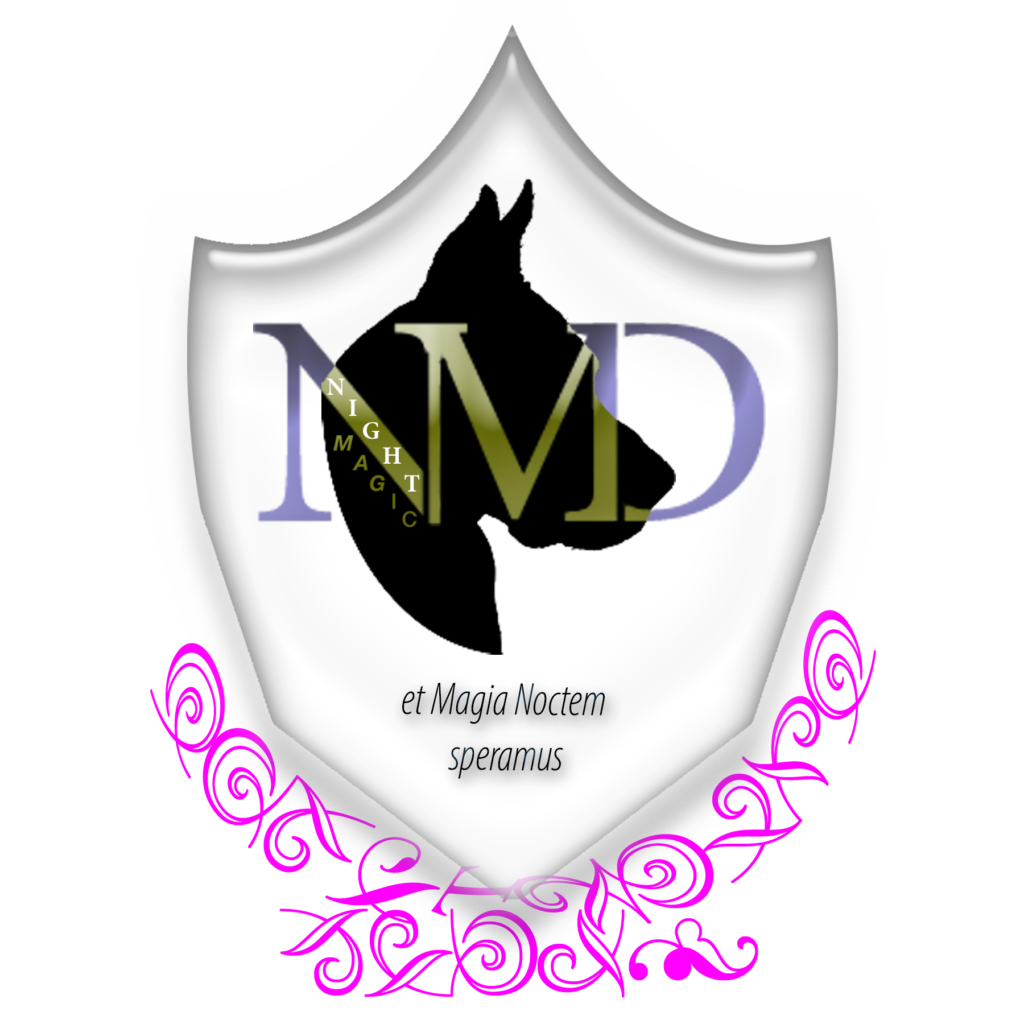Product and information
I have been a loyal fan and client of sea pet for many years now. I feed all of my dogs the recommended daily dose of Omega 3 fatty acid (fortified with vitamin E) from 6 weeks on.
I strongly encourage Great Danes owners, and all owners of large breed dogs to read these articles.
All of Sea Pet products are tested and approved Human Grade, before packaging.

Omega 3 Fatty Acids
(Omega 3 Fish Oils)
Essential Fatty Acids
“The Good Fats – EPA & DHA”
The “good fats” or “healing fats” are the fats that we must obtain in order to be healthy. The key components of healing fats are the essential fatty acids – EPA & DHA. There are several different families of fatty acids but only two of these families are considered essential because the body must have them, but cannot make them. Essential fatty acids (EFAs) must come from foods. EFAs (particularly, DHA & EPA) play a critical role in the proper functioning of almost all of the major systems in the body.
Essential Fatty Acid Families:
1. Superunsaturated Omega 3 Family Alpha-linolenic Acid (LNA)
2. Polyunsaturated Omega 6 Family Linoleic Acid (LA)
Even though both of these fatty acids are considered essential in the diet and we (pets and people) can’t live without them, it is also critical that they are consumed in a properly balanced ratio. This ratio should be around 2:1 Omega 6 to Omega 3. However, experts agree that the diets of both people and pets are providing an excessive amount of Omega 6 (LA) and little, if any, Omega 3. An imbalance as great as 20:1 is extremely common with the high consumption of overly-processed foods and very little whole, raw and fresh foods being incorporated into the modern diet. This imbalance has been proven to be a factor in most of the degenerative diseases that are common in our pets today. By adding a high quality source of Omega 3 to the diet, we can prevent or alleviate many of these diseases.
There are two basic sources of Omega 3 essential fatty acids:
1. Plant based sources, such as flax seed, hemp seed, soybeans, walnuts, etc. (Sources of LNA)
2. Cold water fish oils. (Direct source of EPA and DHA)
Plant sources contain the parent omega 3 essential fatty acid, Alpha-linolenic acid (LNA), which must be converted in the body to Eicosapentaenoic Acid (EPA) and Docosahexaenoic Acid (DHA) in order to perform most of their critical functions. The body requires approximately 10 LNA to produce 1 EPA. This conversion can be difficult or impossible for some older animals or those with degenerative conditions and weakened immune systems. Unfortunately these are the animals that need it the most. Taking into consideration this conversion factor, it becomes necessary to consume a lot more of the plant sources in order to get the required daily allowance. If palatability is low, this can be extremely challenging.
On the other hand, cold water fish oils are a readily available abundant & direct source of both EPA and DHA, eliminating the need for this conversion in the body. Fish oils also tend to be a much more palatable source for animals. Both dogs and cats absolutely love the taste, which makes it easy and enjoyable to administer.
Omega 3 Fish Oils are the richest source of EPA and DHA!
ESSENTIAL FATTY ACIDS
Omega 3 fatty acid family Omega 6 fatty acid family Alpha-linolenic Acid (LNA) Linoleic Acid (LA) Eicosapentaenoic Acid (EPA) Dihomogamma-linolenic Acid (DGLA) Docosahexaenoic Acid (DHA) Arachidonic Acid (AA) Series 3 Prostaglandins Series 1 & 2 Prostaglandins
Essential Fatty Acids and their derivatives serve a number of major vital functions in the body. They are required for the transport and metabolism of both cholesterol and triglycerides. They are required for normal brain development and brain function. They are required in visual function (retina), brain and nerve function (synapses), and adrenal function. They are required in the structure of the membranes that surround each cell in our body. They stimulate metabolism, increase metabolic rate, increase oxygen uptake, and increase energy production. They slow down growth of cancer cells.
DHA (from fish oil) has been shown to be a key in neural development. Research, unveiled at the 2004 American Veterinary Medical Association convention, examined the role DHA (a long-chain omega-3 polyunsaturated fatty acid) – plays in puppies’ neural development.
The research shows “that puppies nourished with enhanced (high) levels of dietary docosahexaenoic acid (DHA) were smarter, more trainable than typical-DHA (low-DHA) nourished puppies.”
DHA is one of the most abundant fatty acids in the brain, and thought to be vital for mental function. DHA has long been praised as a wonder nutrient for human infants and now it’s been found to boost healthy brain development in puppies.
DHA, and its companion, EPA, are the forms of omega-3 essential fatty acids naturally available in fish oils — for optimum utilization.
EPA (from fish oil) also converts to series 3 prostaglandins, which have many benefits. They regulate inflammatory responses (Skin and Joint). They regulate immune function, which can help in fighting disease more effectively. They regulate platelet stickiness. They regulate arterial muscle tone, which involves blood pressure regulation.
The series 1 & 2 prostaglandins have the exact opposite effect on the body as the series 3. They stimulate inflammation, constrict the arteries, make platelets stickier, and inhibit immune response. That is the reason why a properly balanced ratio of Omega 3 to Omega 6 is so critical. In essence they keep each other in check.
Omega 3 Fish Oils Healthy skin & glistening coat, decreased inflammation, increased stamina, a strong immune system and reduced shedding!!
The biologically-available source of DHA & EPA
MSM
(Methyl-sulfonyl-methane)
MSM (methylsulfonylmethane) is a natural form of organic sulfur found in all living organisms, including body fluids and tissues. Sulfur plays an indispensable role in human and animal nutrition. Unfortunately, it is often overlooked. Without the presence of the appropriate amount of dietary sulfur in the body, humans and animals may be prone to illness.
MSM is found in many common foods, including milk, meat, fish, and a variety of fruits, vegetables and grains. However, the processing of foods through heating and drying destroys essential MSM. Therefore, unless your pet’s diet is made up primarily of raw foods, it is unlikely that her/his intake of MSM is adequate for proper health management.
MSM is an odorless, water soluble, white crystalline material that provides an important, bioavailable source of dietary sulfur. Sulfur plays a key role in the maintenance of normal body function. It is an essential dietary component responsible for maintaining the conformation of the body’s proteins by forming flexible disulfide bonds between certain amino acids and in maintaining the integrity of connective tissue. Thiol (sulfhydryl) groups are vital for the catalytic function of many enzymes.
Studies have suggested that the level of MSM in the body is reduced with aging. As with the use of other nutritional supplements, such as vitamins and minerals, a daily regimen of MSM as a dietary supplement is suggested to prevent sulfur deficiency and to replenish and maintain multiple, proper body functions.
Additional recent studies in the use of MSM taken orally indicate favorable response to the conditions of environmental and food allergies, pain from systemic inflammatory disorders, gastrointestinal ailment and infection.
Sea Pet has developed formula powders for horses and for dogs and cats combining the benefits of shark cartilage and MSM with added glucosamine sulfate that can be mixed easily into your pet’s daily diets.
For dogs try our Sea Pet Super Joint Dog Treats – a very tasty combination of MSM, shark cartilage and additional glucosamine.


Helpful Cause
For
Heavy Paws
